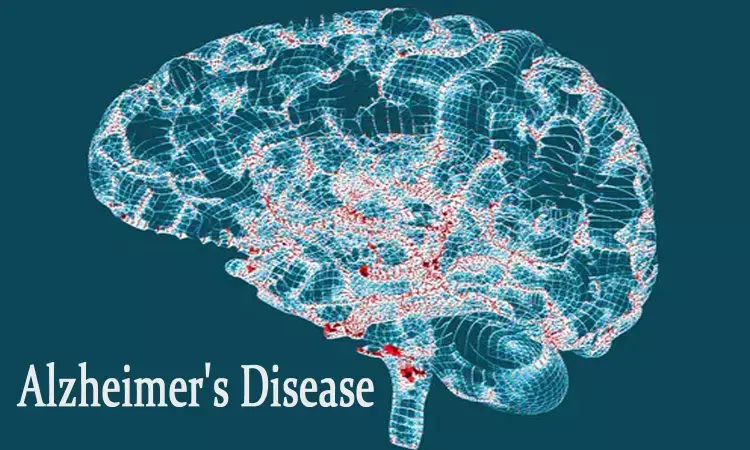- Home
- Medical news & Guidelines
- Anesthesiology
- Cardiology and CTVS
- Critical Care
- Dentistry
- Dermatology
- Diabetes and Endocrinology
- ENT
- Gastroenterology
- Medicine
- Nephrology
- Neurology
- Obstretics-Gynaecology
- Oncology
- Ophthalmology
- Orthopaedics
- Pediatrics-Neonatology
- Psychiatry
- Pulmonology
- Radiology
- Surgery
- Urology
- Laboratory Medicine
- Diet
- Nursing
- Paramedical
- Physiotherapy
- Health news
- Fact Check
- Bone Health Fact Check
- Brain Health Fact Check
- Cancer Related Fact Check
- Child Care Fact Check
- Dental and oral health fact check
- Diabetes and metabolic health fact check
- Diet and Nutrition Fact Check
- Eye and ENT Care Fact Check
- Fitness fact check
- Gut health fact check
- Heart health fact check
- Kidney health fact check
- Medical education fact check
- Men's health fact check
- Respiratory fact check
- Skin and hair care fact check
- Vaccine and Immunization fact check
- Women's health fact check
- AYUSH
- State News
- Andaman and Nicobar Islands
- Andhra Pradesh
- Arunachal Pradesh
- Assam
- Bihar
- Chandigarh
- Chattisgarh
- Dadra and Nagar Haveli
- Daman and Diu
- Delhi
- Goa
- Gujarat
- Haryana
- Himachal Pradesh
- Jammu & Kashmir
- Jharkhand
- Karnataka
- Kerala
- Ladakh
- Lakshadweep
- Madhya Pradesh
- Maharashtra
- Manipur
- Meghalaya
- Mizoram
- Nagaland
- Odisha
- Puducherry
- Punjab
- Rajasthan
- Sikkim
- Tamil Nadu
- Telangana
- Tripura
- Uttar Pradesh
- Uttrakhand
- West Bengal
- Medical Education
- Industry
PET imaging may help researchers see extent of Alzheimer's early damage

Yale University researchers have developed a new imaging technology that allows scientists to see the widespread loss of brain synapses in early stages of Alzheimer's disease. This finding may help scientists in drug development one day. The new research has been published in the journal Alzheimer's & Dementia.
The research compared the density of synapses, which transmit signals between neighboring brain cells, in people with early stages of Alzheimer's with those of people who have no evidence of the disease. As expected, the loss of synapses in those with an early stage of Alzheimer's was particularly high in areas surrounding the hippocampus, an area of the brain crucial to formation of memory, the scientists report.
"However, our new methods enable us to detect widespread synaptic losses thoughout the brain," said Yale's Adam Mecca, assistant professor of psychiatry and first author of the paper. "This gives us confidence that we may use these results as a biomarker outcome for therapeutic trials, which could help speed development of new drugs to combat the disease."
To get a clearer picture of the early effects of Alzheimer's, the researchers used positron emission tomography (PET) imaging of a protein found in almost all brain synapses. Previous imaging technologies had been able to show in broad strokes the loss of brain tissue or reduced brain metabolism in Alzheimer's. However, the new PET scans show the distribution of synaptic damage, a more specific disease pathology present at early stages of the disease, the authors say.
"These methods will allow us to examine synaptic loss at still earlier stages of disease -- when people have evidence of Alzheimer's pathogenesis but have not yet manifested symptoms," said Christopher van Dyck, professor of psychiatry, neurology, and neuroscience, and senior author of the study.
The Yale team recently received a grant to conduct more synaptic imaging and relate synaptic loss to other disease markers for Alzheimer's, including amyloid and tau accumulation.
For more details click on the link: https://doi.org/10.1002/alz.12097
Hina Zahid Joined Medical Dialogue in 2017 with a passion to work as a Reporter. She coordinates with various national and international journals and association and covers all the stories related to Medical guidelines, Medical Journals, rare medical surgeries as well as all the updates in the medical field. Email: editorial@medicaldialogues.in. Contact no. 011-43720751
Dr Kamal Kant Kohli-MBBS, DTCD- a chest specialist with more than 30 years of practice and a flair for writing clinical articles, Dr Kamal Kant Kohli joined Medical Dialogues as a Chief Editor of Medical News. Besides writing articles, as an editor, he proofreads and verifies all the medical content published on Medical Dialogues including those coming from journals, studies,medical conferences,guidelines etc. Email: drkohli@medicaldialogues.in. Contact no. 011-43720751


